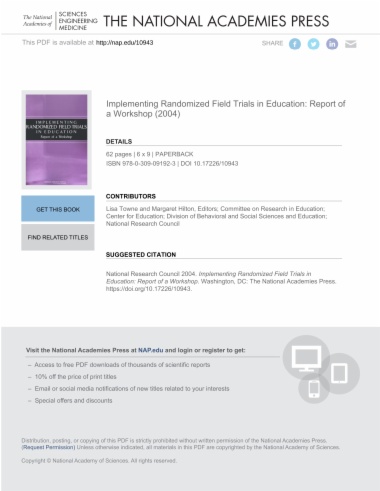

The central idea of evidence-based education-that education policy and practice ought to be fashioned based on what is known from rigorous research-offers a compelling way to approach reform efforts. Recent federal trends reflect a growing enthusiasm for such change. Most visibly, the 2002 No Child Left Behind Act requires that "scientifically based [education] research" drive the use of federal education funds at the state and local levels. This emphasis is also reflected in a number of government and nongovernment initiatives across the country. As consensus builds around the goals of evidence-based education, consideration of what it will take to make it a reality becomes the crucial next step. In this context, the Center for Education of the National Research Council (NRC) has undertaken a series of activities to address issues related to the quality of scientific education research. In 2002, the NRC released Scientific Research in Education (National Research Council, 2002), a report designed to articulate the nature of scientific education research and to guide efforts aimed at improving its quality. Building on this work, the Committee on Research in Education was convened to advance an improved understanding of a scientific approach to addressing education problems; to engage the field of education research in action-oriented dialogue about how to further the accumulation of scientific knowledge; and to coordinate, support, and promote cross-fertilization among NRC efforts in education research. The main locus of activity undertaken to meet these objectives was a year-long series of workshops. This report is a summary of the third workshop in the series, on the implementation and implications of randomized field trials in education.